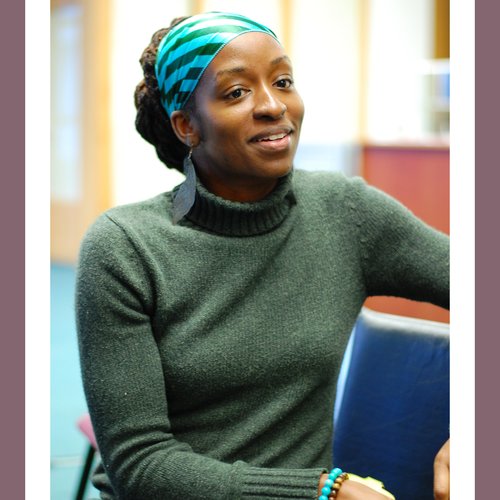2020 BMRC Fellow: Grace Gipson, PhD

Postdoctoral Fellow
Frederick Douglass Institute of African and African American Studies
University of Rochester
Project Title: Telling HER-story and Continuing a Legacy: Chicago’s Black Girl Magic in Comics
The Black female presence in today’s history is one that cannot be denied and has provided a significant impact. Whether creating movements, disrupting norms, changing societal landscapes, the Black female is constantly making and leaving an indelible mark. This is especially true within the pop culture medium, and even more so in comic books. Since the inception of American comics, Black female characters and creators have been treated as an anomaly or fetishized concept. With rare appearances, occurrences as being the central character, and or even controlling the narrative, Black women and girls existence in comics can be portrayed as complex and intriguing. However, in the last 20 years with the [popularity] of such films and television shows as X-Men, Thor: Ragnarok, Black Panther, Luke Cage, The Defenders, Doc McStuffins, and The Walking Dead, Black women and girls have been gradually closing the gap of representation, while simultaneously making a significant leading presence. Even more recently, Black women writers, creators, and artists are becoming more present within the comic book genre. Considering the climate of “representation matters”, it is essential to inform, highlight and tell other stories in comics so as to create a normalization of diversity and inclusivity.
As a city that houses one of the largest comic book collections in the Midwest, Chicago plays a significant role in the medium of comics. Whether serving as the inspiration for many comic book settings (i.e. Gotham City), housing one of the nation’s largest mainstream comic book conventions (Chicago Comic & Entertainment Expo-C2E2), or what would become the home of the first African American woman cartoonist (Jackie Ormes), Chicago and comics have a consistent, growing history. Additionally, as it relates to the Black experience, Chicago is home to the Black Age of Comics movement and convention which serves as an “open source movement” that celebrates and promotes Black commerce and creativity in comics. Also, Chicago has served as a long-standing place for Black indie creators to exist in a largely white-dominated medium. Thus, as the popularity of comics continues to grow and evolve globally, it is essential to note the role Black Chicago creators (especially women) are contributing and how they are increasingly asserting the right to tell their own stories. I seek to build on the established history of Blackness and comics, while specifically highlighting and bringing attention to the Black female’s role in the production, creation, and existence. This project will contribute to the growing relationship between African American history and comics. Oftentimes, many of the narratives in comics speak to social and political issues (locally and globally), which also includes the voices of African Americans and those of the diaspora.
This project will contribute to the growing relationship between African American history and comics. Oftentimes, many of the narratives in comics speak to social and political issues (locally and globally), which also includes the voices of African Americans and those of the diaspora. More specifically, the city of Chicago becomes a focal point of interest within the comic book, much in the same way cities like New York and Los Angeles are able to garner attention. Furthermore, many Chicago artists and writers, particularly Black women, engage and incorporate the city as part of their narrative. This engagement of the city is dual-fold. This is done as it is a celebration of Chicago’s heritage and growing historical narrative, while acknowledging and bringing awareness to past and present legacies of Black women writers, creators, illustrators in comics, which historically has been white and male dominated. Additionally, the medium of comics along with its creators has been able to have an impact outside the comic book page.
Through its visual storytelling, comics are able to create alternative methods of learning, engage with various careers in the arts and journalism, and play a role in building literacy skills. This project seeks to play a role in illuminating the work of Chicago’s past and present Black female voices, while generating new knowledge in African American history and innovative ways of how comics can and does contribute to the historical and social narrative of the Chicago community.